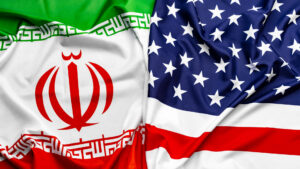Most of the conversations in this series will revolve around technology, but recruitment is a large component of keeping a military productive. We’re not talking about the high school pull up competitions that the recruiters do, but more of the systemic ideology around recruitment itself.
As military technology evolves, we’re seeing the equipment on the battlefield change overnight. However, finding the people to operate this tech and fill out the ranks needs a refresh as well. Considering that 2/3 of the American population are not straight white dudes, the DEI conversation is about to get a new angle.
Transcript
Hey, all Peter Zeihan here. Coming to you from Capitol Reef National Park. We are continuing our series on the future of military technology. And today we’re going to talk about staffing and recruitment. What is the United States or really any country need if it’s going to succeed in this changed era of warfare?
Well, the short is that we really don’t know yet because we haven’t invented the future.
What we know for sure is that the military is going to have to be more flexible. And if you look at the Ukraine war, it’s easy to see why, as little as a year ago in the Ukraine conflict, it was all about fighter jets and bombers and artillery and tanks. But in that time, it’s evolved completely, with most of those platforms no longer being able to hold their own against evolutions in drone technology.
And drones are just leading edge of this revolution that combines new types of digitization and energy transfer material science to completely new packages. We now have, for example, our first rocket drones, which have a range of over a thousand miles that can easily take out a refinery. The world is changing. What we do know is that the old style of doing war, which is basically throwing a bunch of bodies at something else and see who comes out on top, isn’t going to work.
One of the biggest problems that I have with the current administration, most notably Defense Secretary Pete Hegseth, is he doesn’t seem to understand how the numbers work. Hegseth is on a roll, basically on the warpath against something that he calls Dei diversity, equity, inclusion and the idea that one group should have favoritism over the other. I agree is silly, but in the military context, that’s not how Dei has ever been implemented.
Dei in the military is a recruitment tool based on how you look at the numbers. At most, 30% of the American population are straight white males, and on average, straight white males are older than the average American population.
So no matter what your definition is of what a good soldier, marine sailor, airman happens to be. The bottom line is, if you’re drawing from a small pool that it’s getting smaller and you’re fighting a war of numbers, by your own definition, you’re going to lose and lose badly. And that’s before you consider the changes that are coming to the technology.
We need better skill sets embedded within the system, and that means recruiting people there in a different way than how we do it now. right now we generally bring in people in the age bracket of roughly 17 to 25, and we break them down.
We indoctrinate them into the system, train them on systems that have existed not for years but for decades. Well, that’s not going to work when the technological time to target is measured in weeks to months. We also need to change procurement. The idea that the military goes out there and says what it wants, and then private military contractors go out and design the system, basically parade it in front of the military to see what works.
And then years from now, we get a prototype, and years after that we get mass production. That won’t work because this all has to go from the point of imagination to the point of deployment in less than a year. So everything about how we fight right now needs to evolve,
And that means a broader skill set with as wide of a diversity of backgrounds as possible.
And so why, while we’re going through these transitions, will you tell anyone in the United States who is a woman or who is black, or who is Hispanic, or who is gay, that they have limitations on how they could choose to serve their country? It just doesn’t make any sense from a strategic point of view.
About the only argument that I have seen that argues for a different direction in order to maintain power is basically the Elon Musk approach, which is to basically go out for everyone who is a white, straight male who has employees go out, sleep with 12 of them and start generating a new white race.
Well, you know, I don’t know if you knew how math works, but if that all happens today, you’re not going to get your new crop of your new race for 18 years. And we will be on the other side of this military transition by then. We need to work with what we have, and that means using the skill sets of absolutely everyone who has an interest of being in the US military.








